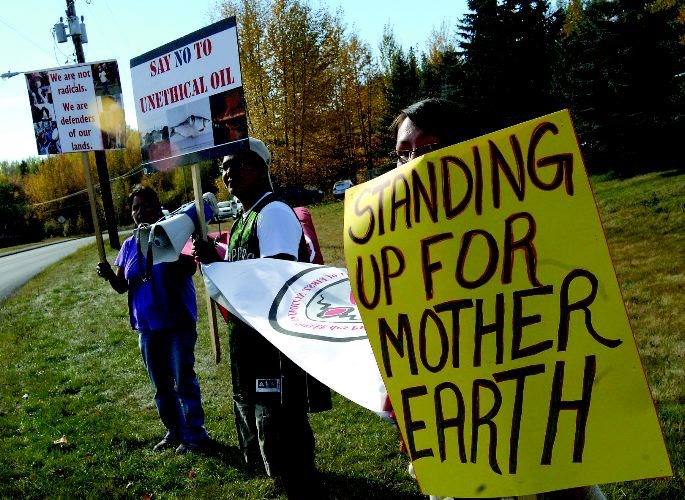The man in charge of the provincial government's questioning at the Northern Gateway pipeline hearings believes the company behind the project isn't being entirely cooperative when selecting its witness panels.
At a break in the first day of hearings at the Columbus Community Centre, Geoff Plant said the way Enbridge split its witnesses between three separate panels has made it more difficult for the province to ask its questions.
"Northern Gateway knows that we're going to ask those questions so it is starting to be a bit of a concern that the way they are dealing with these issues is by saying that they don't have the right experts here," Plant said Tuesday afternoon. "We have confirmation from the Joint Review Panel that we're on the right topics. I don't want to be unfair to people, but we're kind of getting a less constructive organization on the part of Northern Gateway to the process than they ought to be putting up."
Plant, the former attorney general, isn't the one asking the questions for the province, but Premier Christy Clark appointed him to lead up the legal team tasked with asking representatives from Enbridge about its plans for the pipeline to connect the Alberta oilsands with Kitimat.
The final phase of the National Energy Board's Joint Review Panel (JRP) hearings began last month in Edmonton - and the province squabbled with Enbridge over what questions should be asked where at that venue as well.
Enbridge is just following the direction of the panel when selecting the witnesses, said Janet Holder, Enbridge vice-president for western access.
"I think you have to understand it's not our process, it's the JRP's process," she said. "They establish which issues are being addressed and what panels we put our witnesses on."
Both Plant and Holder agreed that due to the cross-over in many of the topic areas, it's challenging to always have the right people available to answer the questions.
On Tuesday the debate centered around mapping issues and who was the best person to speak to how certain types of maps were developed. The province believe they fit under the topic of geotechnical engineering, which was up for discussion at Tuesday's session but Enbridge's expert on the specific maps in question isn't expected to be sworn in as a witness until environmental and socioeconomic issues are on the table later in the Prince George hearings.
The two sides spent close to an hour going back and forth with Elisabeth Graff, a lawyer for the province trying to get Enbridge engineering expert Drummond Cavers to talk about specifics based on the types of maps used, while Cavers insisted on talking in generalities since he didn't have input into the development of the map.
After an extended break in the hearings, Graff also asked panel chairwomen Sheila Leggett if more witnesses could be sworn in as part of the panel to make it easier for the province to ask its questions, but she was denied.
Graff later continued with a different line of questioning.
Holder said she's not surprised there were some hiccups early on as both sides tried to figure out who should be answering questions.
"I think every day at the beginning of a hearing, everybody is trying to find their place and trying to understand who's who," she said. "It's the first time lawyers have seen our witnesses and they're trying to understand who they are and what they're there to answer to. I don't think it was out of the ordinary at all."



